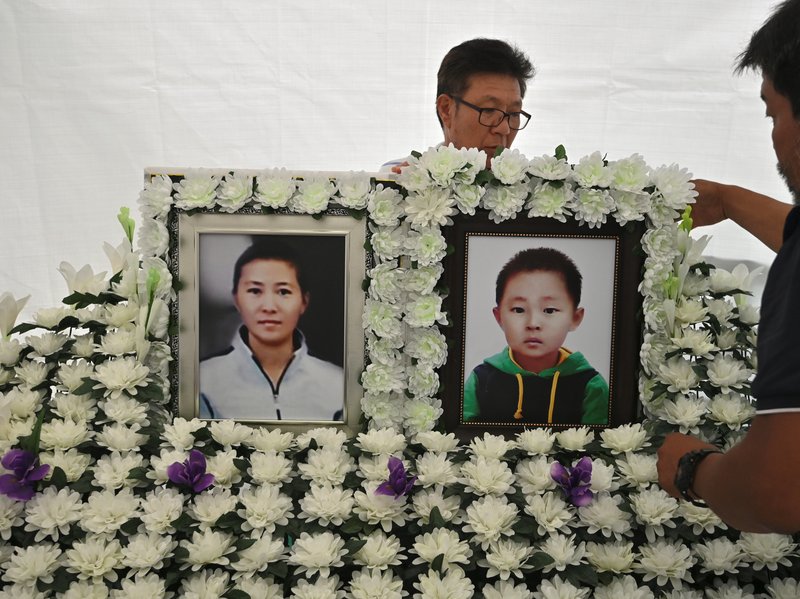Why a senior defector believes North Korea’s days are numbered
Thae Yong-ho, a former North Korean diplomat who held posts in Denmark, Sweden and the U.K. said that while the regime’s elusive leader, Kim Jong Un, may have no intention of undertaking reforms or giving up his nuclear weapons, change is inevitable. Thae, who lives under the protection of the South Korean government, and travels with an entourage of body guards, recently sat for an interview with TIME, amid news that U.S. President Donald Trump and Kim have been expressing interest in another summit.
Q: President Trump has pursued a strategy of cozying up to hostile leaders, including Kim Jong Un, in the hopes that it will pay off at the negotiating table. What do you think has been the effect of this?
A: I think President Trump is playing a very dangerous game with North Korea. President Trump met three times with Kim Jong-Un, [but] … has not taken any significant measures to stop the nuclearization of North Korea. Meanwhile Kim Jong Un has achieved quite a lot. First, he avoided a so-called military option, which President Trump had emphasized quite often in 2017. Second, he stopped President Trump from adding additional sanctions. Third, thanks to these meetings, Kim Jong Un actually strengthened his legitimacy and absolute rule over North Korea.
Q: President Trump has made it clear he wants the Nobel Prize for making peace with North Korea. What does Kim Jong Un want from these talks?
A: First, he wants nuclear status in this region. …Like what India and Pakistan did. Second, is that through this dialogue process with President Trump, Kim Jong Un, a man in his thirties, all of a sudden raised his rank to the same level as other important players in this region. And domestically, he proved to North Korean people that he is very capable, even though he is young.
Q: You’ve said that North Korean people, both regular citizens and the elite, don’t believe in the system. What gives you this impression?
A: The current regime can be termed a socialist skeleton. The bones have a socialist structure, but the flesh has already turned capitalist. The number of black markets and free markets are increasing every year. If you read Rodong Sinmun, North Korean media, they said North Korea will not collapse because of a military strike by imperialists, but it is possible if the young generations are not educated properly.
Q: What do they mean by ‘educated properly’? What’s different about the younger generation?
A: If you look at the millennial generation of North Korea, they are the only ones who have grown up with computers. When computers were introduced in late 1990s, all of a sudden there was a boom of English learning. If you want to use a computer, you have to know English, right? And they are not interested in watching communist or socialist cultural content. They are only interested in American or South Korean movies or dramas. I think that the young generations’ eyes are not on ideological things, but on material things. And even though the North Korean regime wants to stop it, they can’t stop this future.
[Excerpted from TIME interview]

